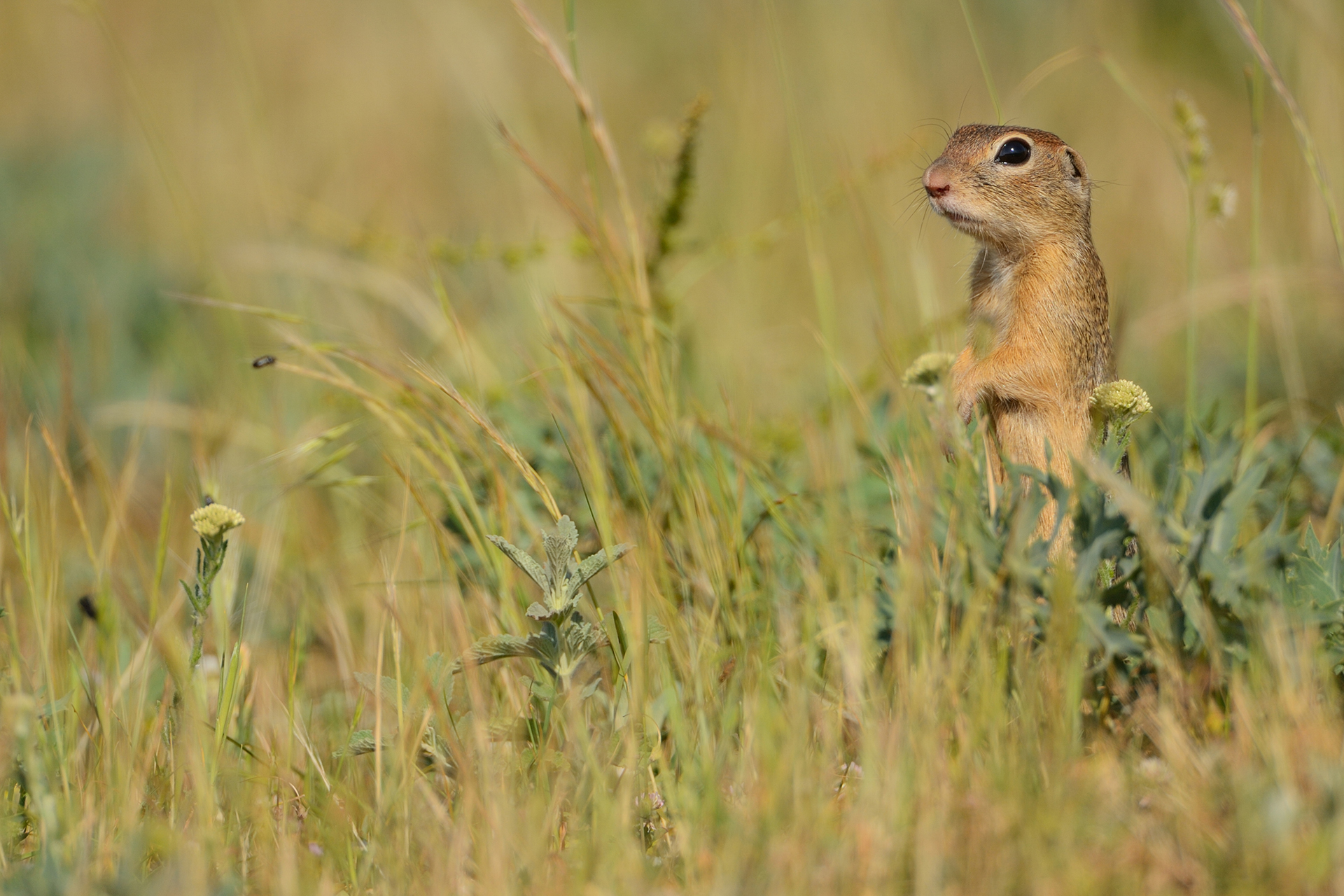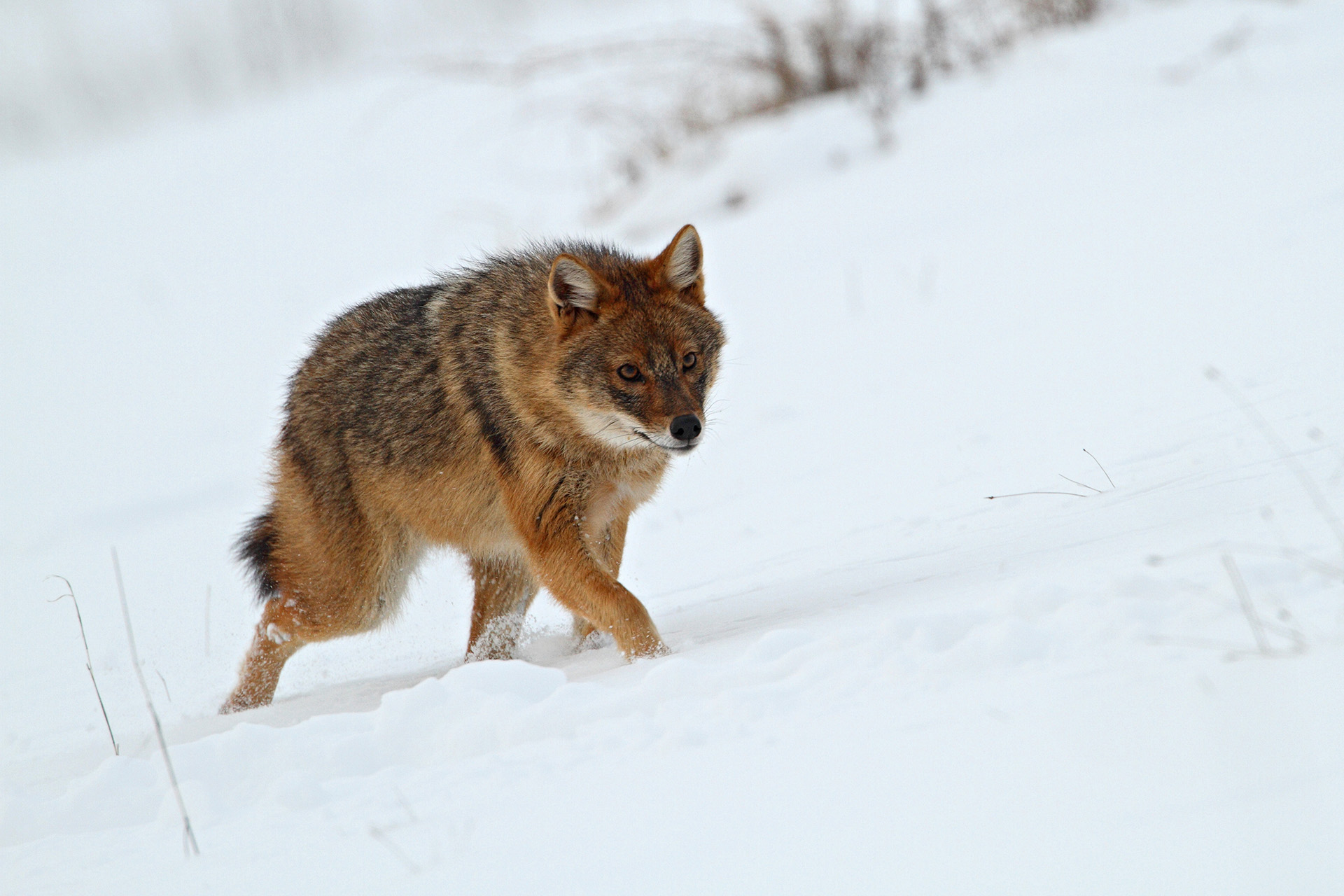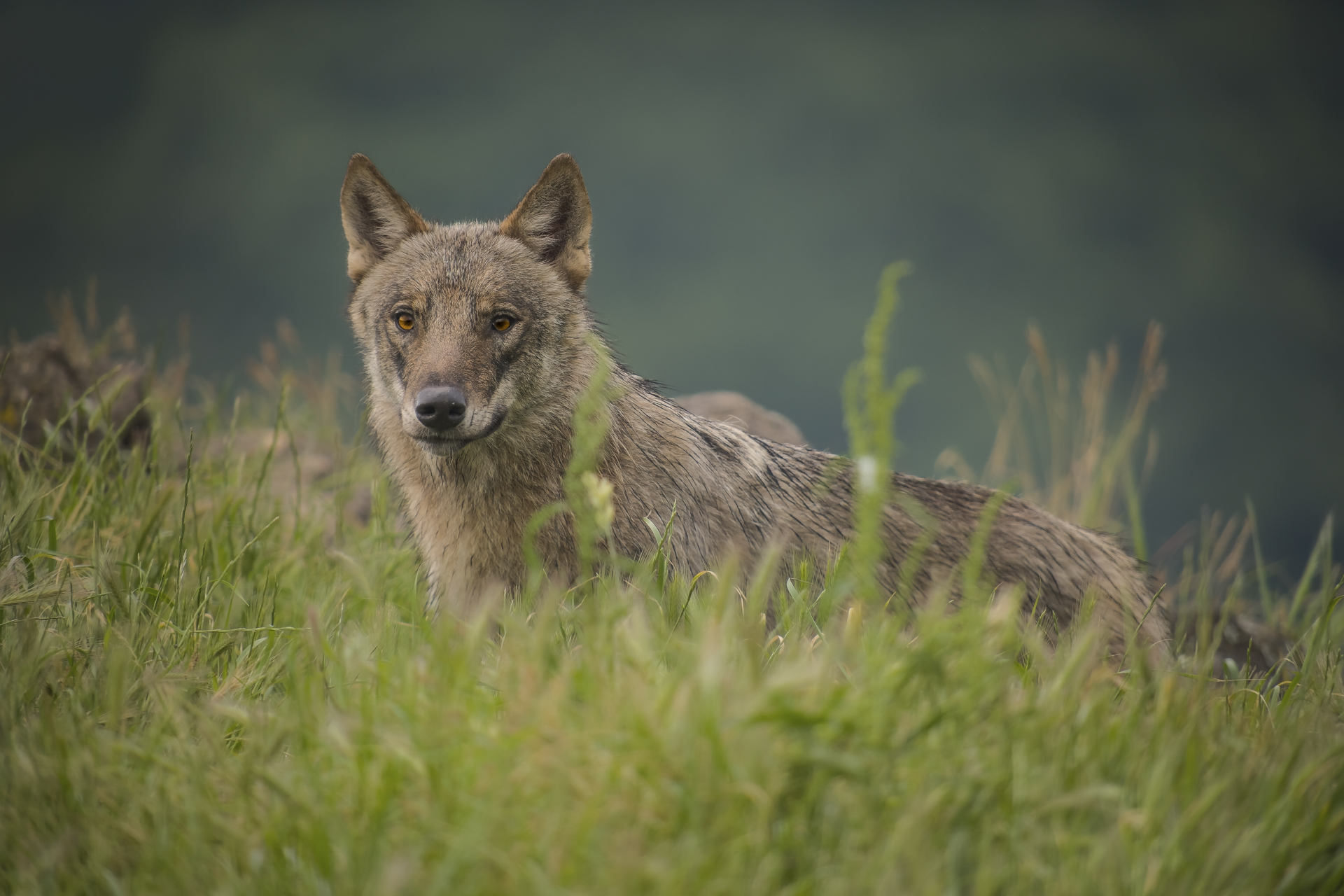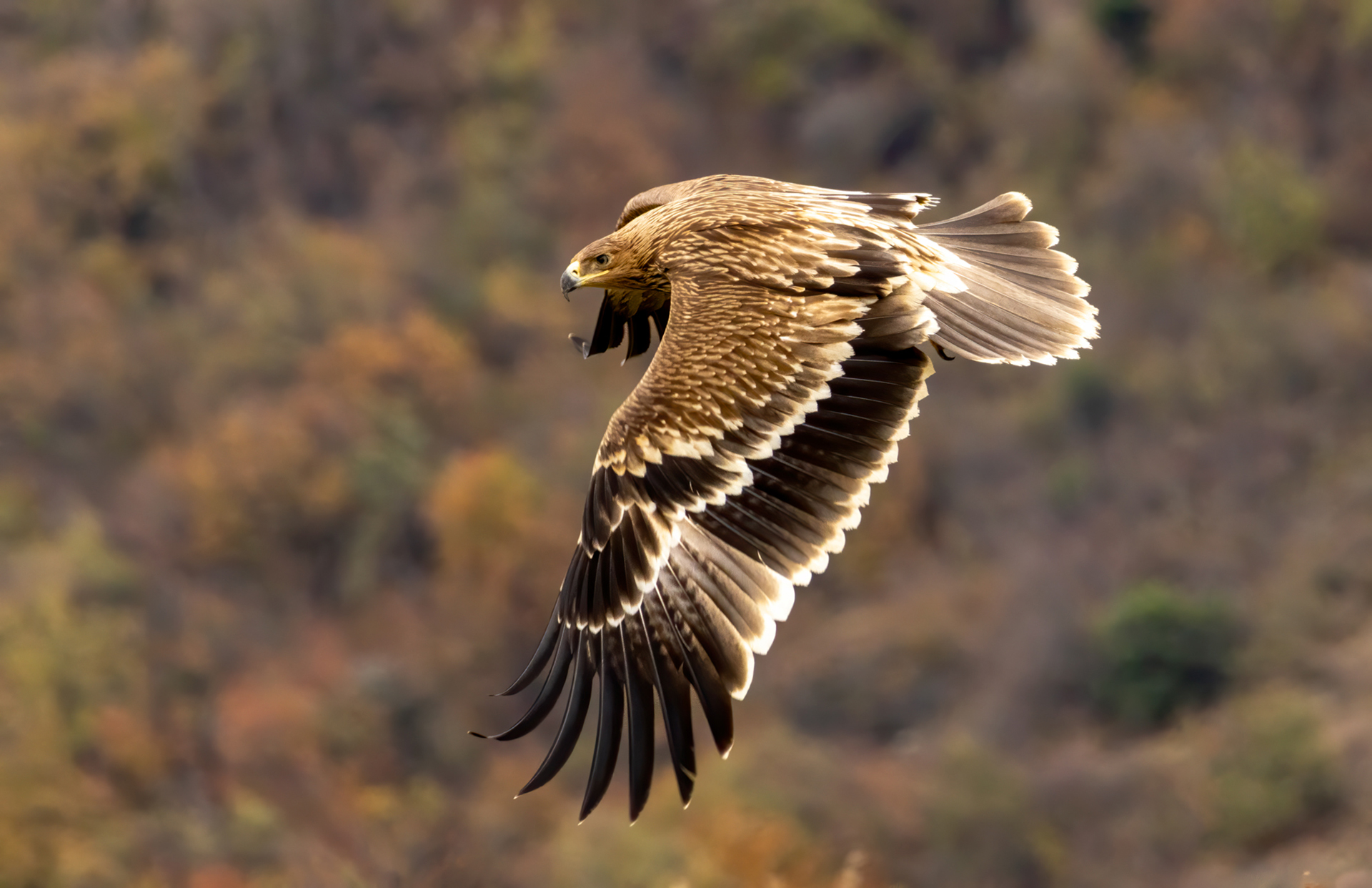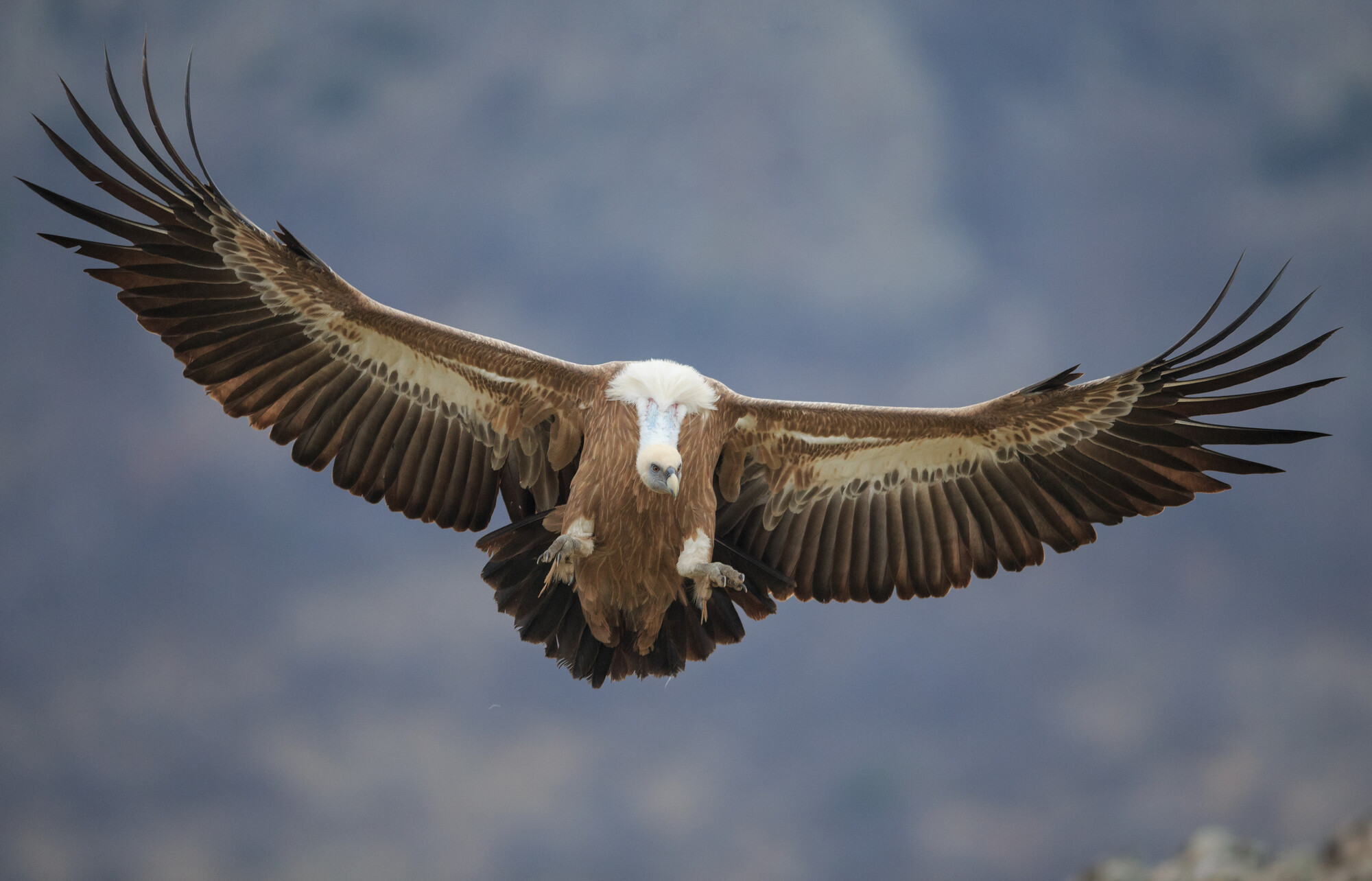With the support of the European Wildlife Comeback Fund, the Bulgarian Society for the Protection of Birds is reintroducing fallow deer in the Sakar Mountains. Restoring populations of this species will support the recovery of predators and scavengers and lead to a wilder, healthier landscape.
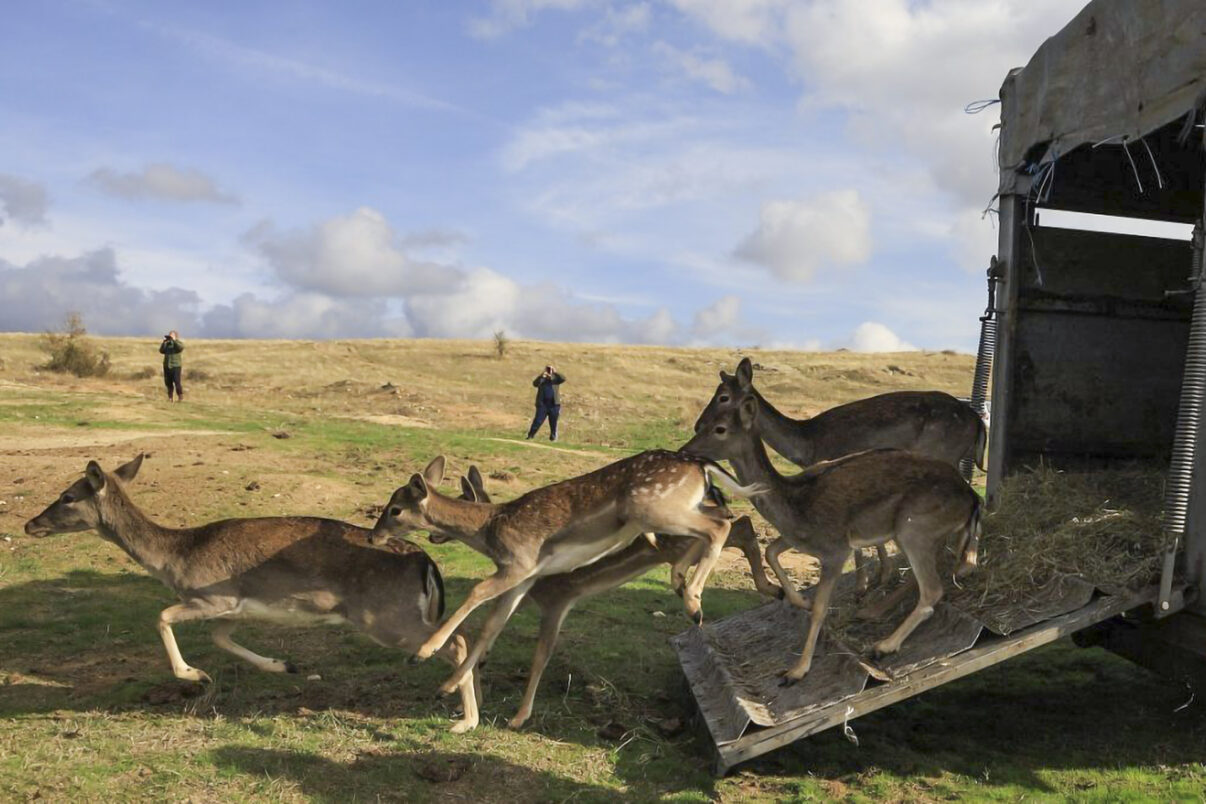
Enhancing the circle of life
With support from Rewilding Europe’s European Wildlife Comeback Fund, the Bulgarian Society for the Protection of Birds (BSPB) – one of Rewilding Europe’s local partners – is taking significant steps to rewild the Sakar Mountains. Located just to the north of the Rhodope Mountains rewilding landscape, the area boasts rich biodiversity and hosts 81 species from the IUCN red list, such as the iconic eastern imperial eagle and European souslik. Wolves have also returned to the area, following decades of persecution throughout the late 20th century. Like all apex predators, wolves play a crucial role in the food chain. They primarily hunt deer and wild boar, whose carcasses also support scavengers, including recently reintroduced cinereous vultures.
Healthy populations of large herbivores are key to a functioning ecosystem and “circle of life“. In Sakar, wild boar numbers have declined in recent years following an outbreak of African swine fever. Similarly, deer populations have been heavily impacted by unsustainable hunting and poaching. The decreasing availability of natural prey for predators has the potential to increase predation on livestock, which could lead to co-existence challenges with farmers. It could also increase the illegal use of poisoned baits, which impact the whole food chain, including vulnerable scavenging species. Thankfully, fallow deer reintroductions offer a lifeline.
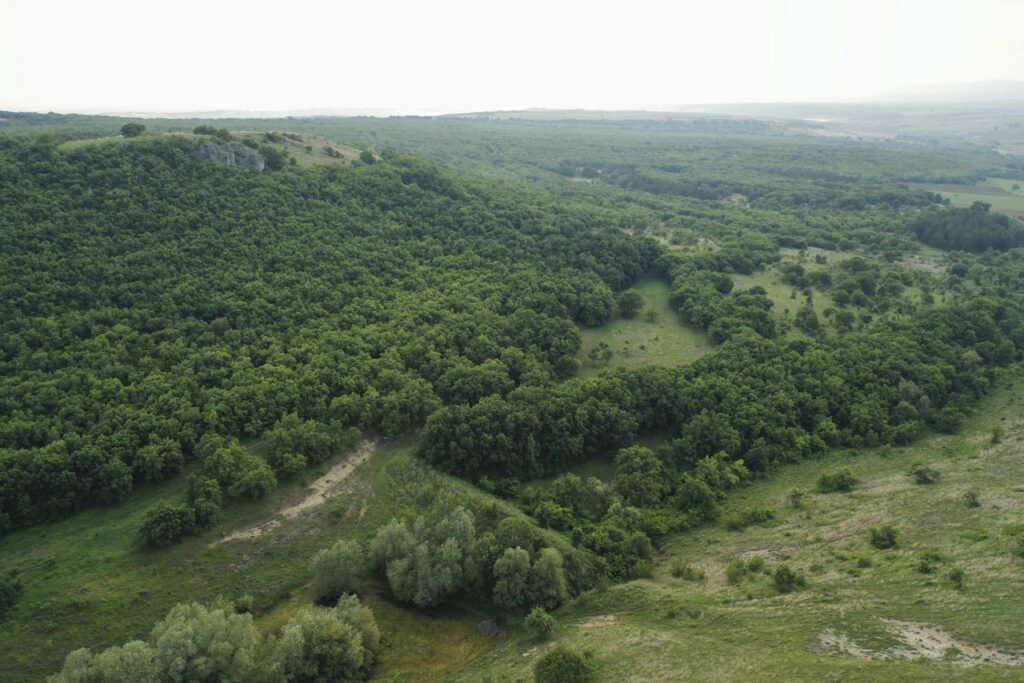
Productive collaboration
Conservationists and the local hunting community saw that degraded deer populations were causing a weak link in the Sakar food web. While it may seem an unlikely alliance, the BSPB and the “Falcon” Hunting Society of Harmanli therefore decided to start a fallow deer reintroduction initiative in 2023. With financial support from the European Wildlife Comeback Fund and the Endangered Landscapes & Seascapes Programme, the BSPB provide the fallow deer and, together with the hunters, oversee the releases. For the following three months, the hunting society closely monitors the deer as they settle into the landscape and oversee their management.
In November 2023, the first release of 26 animals took place in the western parts of Sakar Mountain, with monitoring carried out via camera traps and GPS transmitters. The deer adapted well to the landscape and the following spring welcomed the first fawns. Encouraged by this achievement, other regional hunting groups began joining the initiative, with a second release of 46 deer taking place in November 2024. A five-year ban on deer hunting has also been agreed until the population has sufficiently recovered.
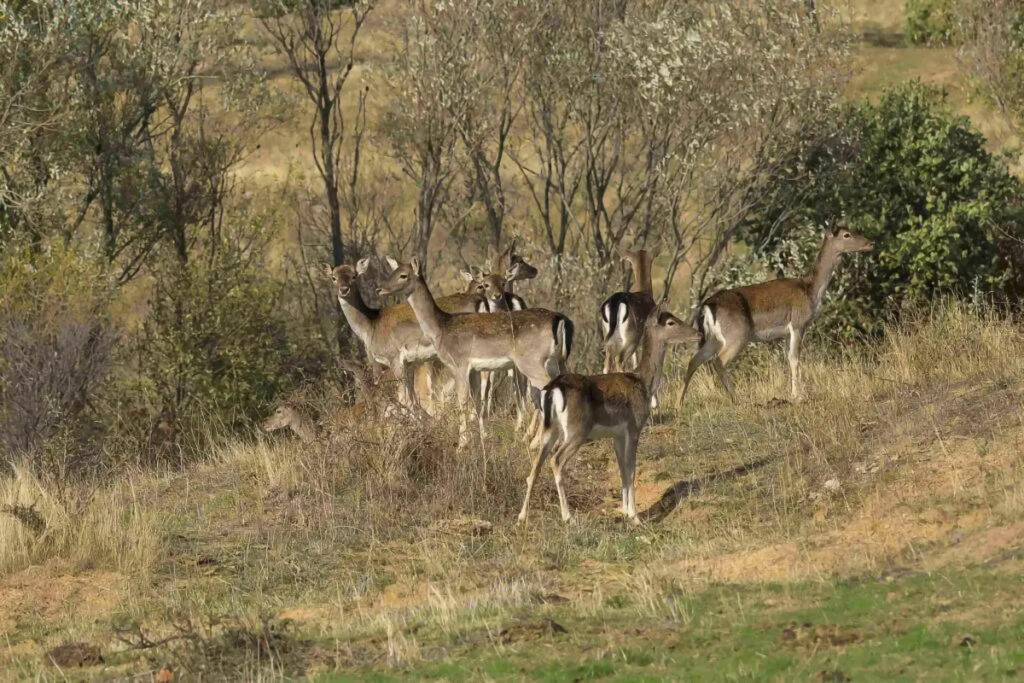
Towards a wilder landscape
In addition to reducing potential livestock predation and mitigating the threat of illegal poisoning, reintroducing fallow deer will help boost biodiversity in the Sakar Mountains. As they graze and browse on vegetation, the deer play a vital role in shaping a mosaic of semi-open habitats, supporting a wide range of other wildlife, including the recovering lesser kestrel and European ground squirrel. Golden jackal and other predator species also benefit from more abundant wild herbivore populations, while the subsequent increase in carrion is a vital resource for scavenging species, from rare invertebrates to griffon vultures.
“By restoring the deer population we are also supporting the recovery of vultures and helping to re-establish their permanent presence here,” says Stoycho Stoychev. “A more complete ecosystem will further enrich this region’s extraordinary biodiversity. By replenishing large, grazing species, both the landscape and local communities will continue benefitting from wildlife comeback and a wilder, healthier landscape.”
Scaling up
Following the successful collaboration between various hunting groups and the BSPB in releasing fallow deer to date, other local hunting organisations are keen to replicate this approach, with the Bulgarian NGO now exploring ways to extend the initiative. The engagement of the hunting community is vital for the scaling up of large herbivore restoration in the landscape – working together builds mutual trust and helps to mitigate the risks of poaching and the accidental shooting of raptors, including the eastern imperial eagle and cinereous vulture.
“The ongoing reintroduction of fallow deer is a crucial step forward in restoring the natural balance of the Sakar Mountains,” says Stoycho Stoychev, the BSPB’s Conservation Director. “By working closely with local hunting clubs and communities, we are not only bringing back a historically native species, but also fostering a sense of shared responsibility for nature. Engaging local people in conservation efforts ensures long-term success and demonstrates how wildlife protection and sustainable land management can go hand in hand.”
The fallow deer initiative builds on the BSPB’s long partnership with the Rewilding Rhodopes team, following extensive efforts to restore vultures in the neighbouring Rhodope Mountains rewilding landscape. As a local partner, the BSPB’s close collaboration with hunting associations to recover wild herbivore populations aligns with Rewilding Europe’s vision of restoring food webs, while the successful releases underline the importance of the European Wildlife Comeback Fund in enabling and accelerating wildlife comeback across Europe.
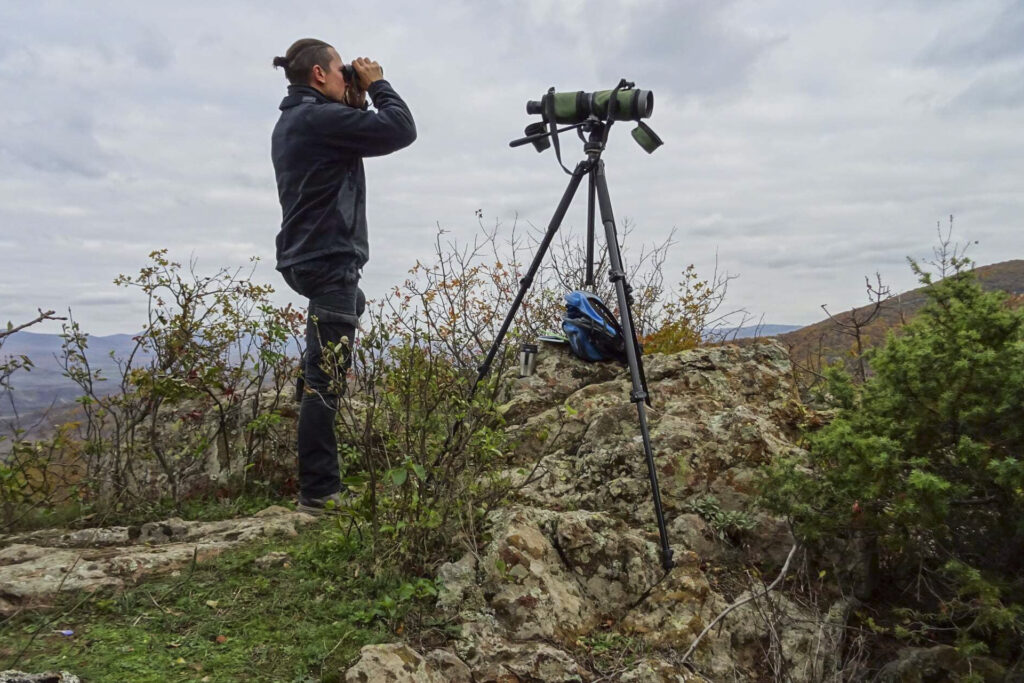
Let’s rewild together
The agile setup of the European Wildlife Comeback Fund is designed to support wildlife comeback in a convenient and flexible way. Rewilding Europe invites other initiatives working to reintroduce keystone species in European landscapes to consider applying for a grant.
Those interested in contributing to wildlife recovery in Europe can support wildlife comeback with an online donation. If you’d like to invest more than 50,000 euros in the European Wildlife Comeback Fund, we’d love to get in touch with you personally.

